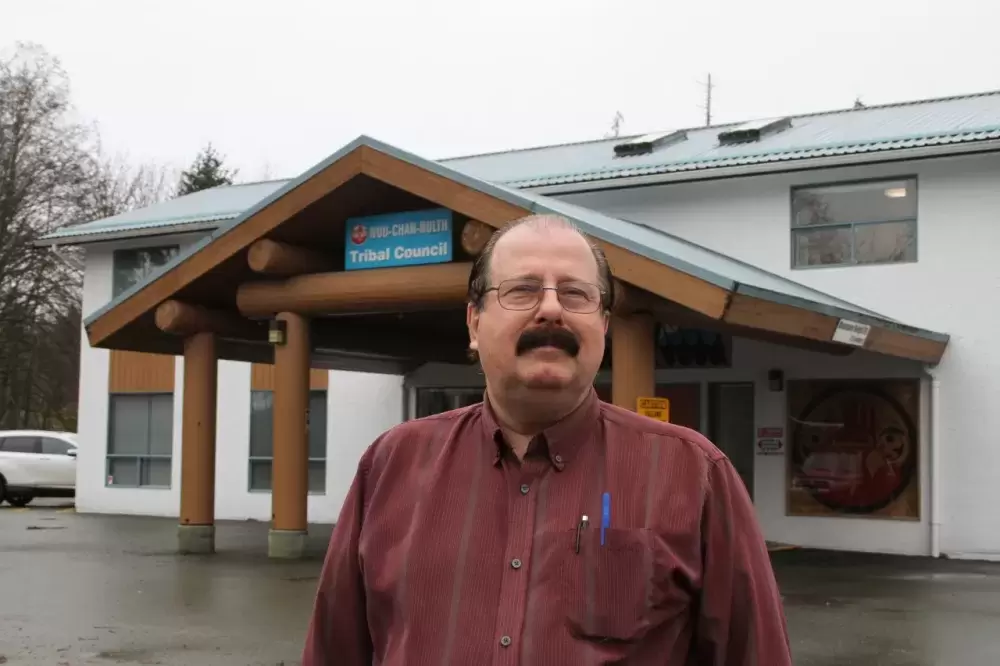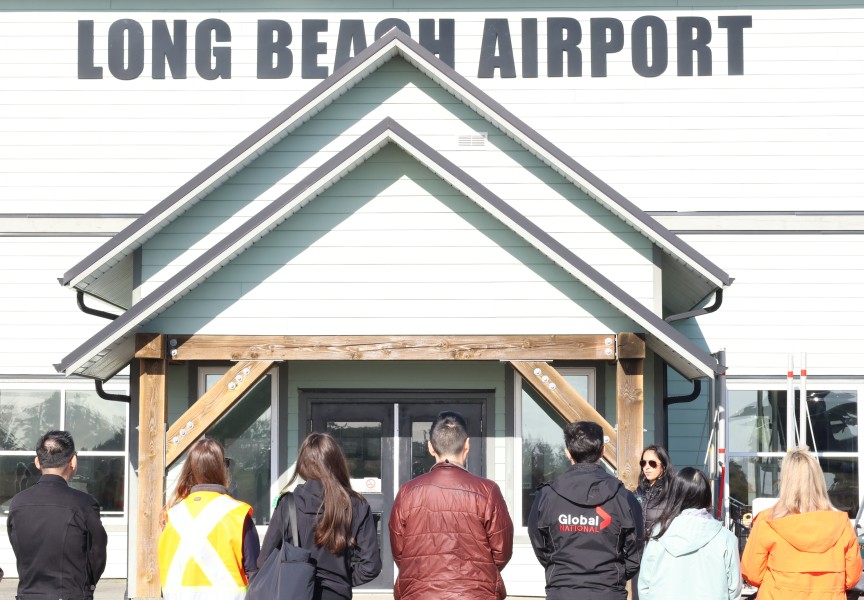At the end of this month a career of service to Nuu-chah-nulth concludes, spanning a 34-year period that saw the tribal council transform from a political advocacy organization to one of the widest reaching service providers in the region.
Simon Read, the Nuu-chah-nulth Tribal Council’s director of health, retires from his post on Jan. 31, leaving behind volumes of policy development, advocacy and service implementation for the people who call the west coast of Vancouver Island their ancestral home.
Read joined the NTC as tribal planner at the end of 1984, stepping into a world of outspoken Nuu-chah-nulth leaders who left legacies of being highly vocal advocates for their people. By contrast Read held his role with a characteristically soft-spoken manner, precise in his communication while steadfastly focusing on how to improve the lives of Nuu-chah-nulth-aht.
Former NTC president and Community and Human Services manager Debra Foxcroft recalls Read being a “a solid rock foundation for our Nuu-chah-nulth organization.”
“We came together very strongly,” she said. “I can remember the days of the tribal council meetings where we would have 200 people in our meetings.”
“He’s a book of knowledge because he has that corporate history of Nuu-chah-nulth,” Foxcroft added, noting that Read began when the NTC was on the verge of taking over a variety of services from the federal government. “He was involved in the development of block funding for Nuu-chah-nulth, the health transfer and some work, of course, on child and family [services] in terms of planning.”
Geraldine Edgar-Tom, a cultural support worker with Teechuktl Mental Health, remembers working with Read in the mid-1980s when she represented health interests for the Nitinaht (now Ditidaht) First Nation on a committee.
“He was a huge part of making appropriate strategies for the funding arrangements,” she said. “He took his time, he was patient, he called lots of meetings - and took all the direction of the community members, chief and council.”
At the age of 32, Read came to the NTC with consulting experience from government, corporations and First Nations contracts. But it was with Indigenous communities that Read wanted to employ his skills.
“I felt more valued in doing that work,” said Read, who mostly grew up in Coquitlam, B.C.
In 1984 the NTC employed just under 20 personnel, but this was destined to change after a motion was passed by chiefs three years earlier for the organization to take over health services from the federal government, as well as child welfare.
“There was virtually no service provision at that time,” recalled Read. “It was at the point where the federal government was first starting to think about devolving services to First Nations’ control.”
The health services transfer finally occurred in 1988, after Read transitioned to be the NTC’s health coordinator, and the establishment of Usma Nuu-chah-nulth Family and Child Services would follow.
“It was the wish of Nuu-chah-nulth to be in control of their own,” said Read, noting that this desire came from the negativity of the residential school system and the resulting health conditions from that institutional legacy. “It was clear the system, in terms of health, wasn’t working. The [Nuu-chah-nulth] worldview is quite different: it’s more holistic than the European philosophies, which tend to separate things into different components.”
The number of registered NTC members has also changed over Read’s 34-year term. In the mid-1980s there were approximately 4,000, a number that has grown to 10,000 among 14 bands. To serve this growing population the NTC has increased its workforce tenfold to almost 200 staff in multiple offices from Port Alberni to Gold River.
This includes nearly 70 staff involved in health services.
“When we started public health services here, a nurse would work with 5,000 people,” said Read. “Now we’re staffing for about one per 500.”
Over his term Read has seen health condition improve among many Nuu-chah-nulth people, although in some ways dangers have also increased.
“There is a really strong core of people that are more educated, involved in leadership positions - both political and service-related - so a lot of improved health in that direction,” he said. “At the same time we’ve got not just some of the old substance issues, we’ve got the new ones. The opioid crisis, a minority of the population is still very caught up in some of those negative behaviours and a lot of work still has to be done.”
“Individuals carry the ability to improve their health,” added Read. “Professionals really don’t. They can help with information and advice, but it’s up to each individual and the people that have family around them. They need to have the will to change their own health.”
His time at the NTC also grew into a family for Read, who first met his future wife Brenda Lauder at a tribal council meeting before taking on his position. They ended up having three children.
“I learned very quickly that she was already taken and out of bounds so I left it there,” he said, adding that he would connect with Brenda a few years later when she began working for the NTC. “A couple of years later the world turned again and we came together. That’s been one of the biggest blessings of coming here.”







